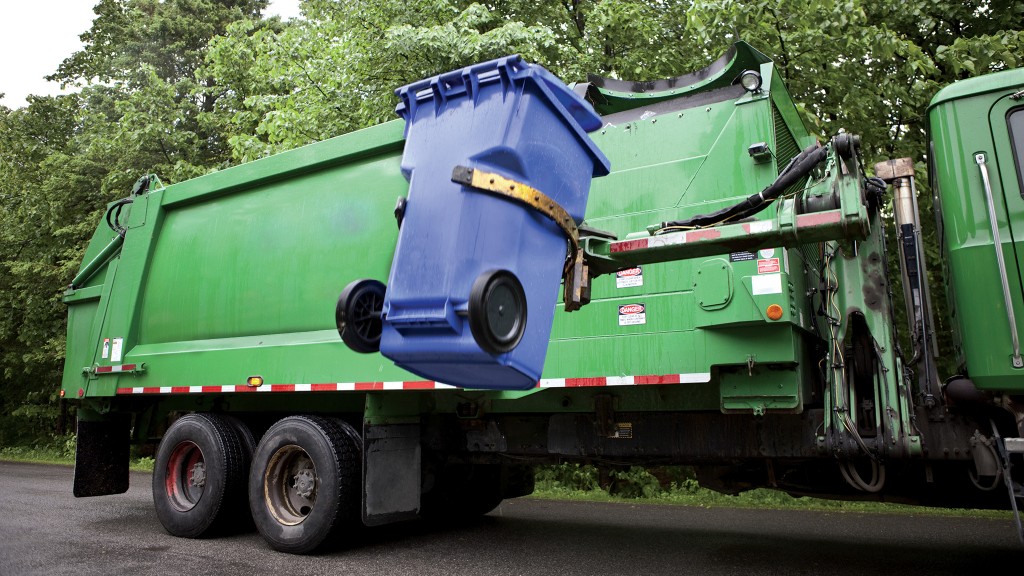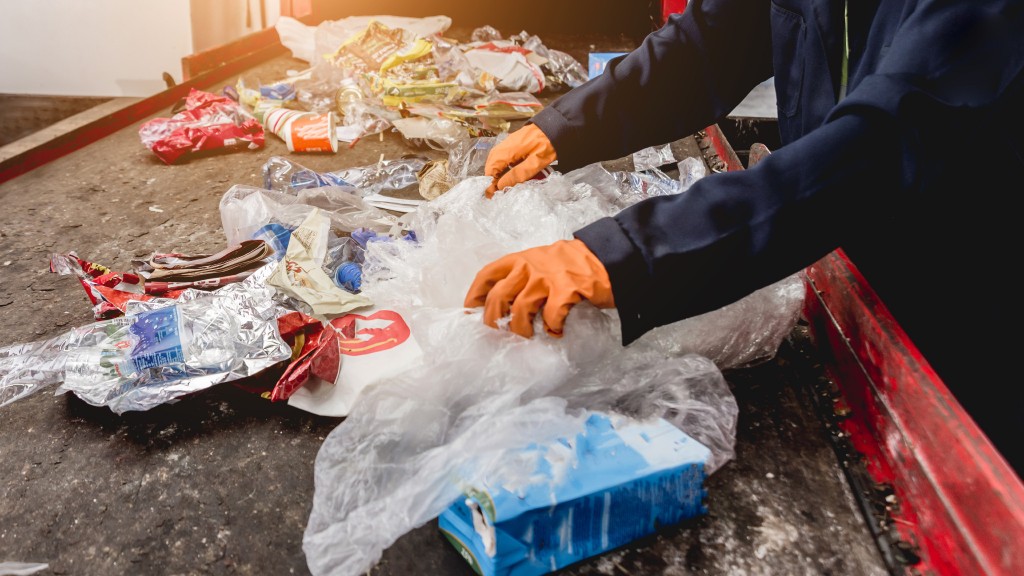
Robin Wiener has been serving as president of the Institute of Scrap Recycling Industries (ISRI) since March 2000. Prior to that she was ISRI executive director and had also directed the organization's environmental compliance activities. Just prior to our conversation, she was named this year's recipient of the Gulf Coast Region's Israel Proler Award for outstanding leadership achievement and contributions to the recycling industry.
Our discussion includes topics such as ISRI's advocacy efforts, the advent of new recycling technology, the state of the recycling industry, and more.
Arturo Santiago: Congratulations on being the latest recipient of the Israel Proler Award.
Robin Wiener: I was so honoured and humbled because I know the great contribution and legacy of Izzy Proler and I know a lot of those in the Gulf Coast region who received the award before me, who I respect immensely. The best example is Arnie Gachman, who was selected to present the award to me. And it just so happens I posted something in social media two days earlier about how much I admire Arnie and how he's an icon in the industry, not just for what he's done to advance the recycling industry and the time he's given, but for all he's done to help the communities both in which he lives and where his facilities are located. He is someone I admire so much, so this was very meaningful for me and I'm just so grateful to the industry, the Gulf Coast region, to all the staff that make me look good, and to all the chairs I've had the opportunity to work with over the years. It really is a great industry to work for. I wouldn't be sitting where I do for the last 33 years unless I loved everyone and everything about it.
AS: ISRI recently offered testimony to the US House Energy and Commerce Committee/Subcommittee on environment and climate change for which the topic was titled, "Solutions for America's Broken Recycling System." What perspective did ISRI offer?
RW: We obviously do not believe that recycling is broken. It is actually doing very well. Are there parts that can be stronger? Absolutely. And we are all for certain efforts on the part of Congress and others to help strengthen the system.
A focus of the hearing was a number of proposed legislative solutions that have come forward, some of which we support and, to be honest, we have been a part of drafting. And others which we do not believe will actually lead to a solution. ISRI's chief lobbyist Billy Johnson testified along with several others. His message was that recycling is strong and is an important part of the solution to a more resilient planet and a sustainable economy. Recycling is working very well in major segments of the industry, such as commercial and industrial. In residential, it certainly can be stronger. The key to greater strength in the residential recycling system is greater access to collection. Collection is a weak point in the system. One of the bills that we've actually been a part of promoting, the Recycling Infrastructure and Accessibility Act of 2022, increases access to underserved areas throughout the country. We believe very strongly that's where the emphasis should be.
There are also proposals in Congress to extend education and recycling awareness. We believe that's also very important. We have been part of previous efforts that were part of the infrastructure bill that passed last year that included language on education and awareness as well as on data collection. Proper definitions for recycling and recycled materials are also in a number of these bills. The one proposal that's being put forward that we do not support has to do with extended producer responsibility (EPR). We don't believe that EPR is a solution to the system. We think that you have to attack it in different ways.
AS: What other advocacy is ISRI involved in?
RW: Certainly, one of the biggest challenges that our industry is facing, as are most industries across the economy, is with the supply chain. Supply chain logistics, the movement of materials throughout the country and globally. We were very pleased with the recent passage of the Ocean Shipping Reform Act. Shipping is one of the weak points in the system. Part of the challenge had been that the Federal Maritime Commission (FMC) did not have adequate authority to regulate shipping companies. This new law gives them greater authority to go after detention and adopt best practices that will help those companies that are shipping recycled materials, and other products. The impact will not be immediate. It is going to take time for FMC to develop the necessary regulations, but it's a great first step.
We're also working on rail issues through the surface transportation board (STB) and have made progress, working to give STB more authority for items like reverse demurrage which will charge the railroads when they hold up our materials. STB is actually looking at that, which is pretty remarkable.
There's the general issue of market access. As we look more and more at climate change as an important issue throughout the world, as well as resource constraints that we're going to run into as a result of the increased move toward decarbonization, recycling is going to become more and more important. It's very good news, but the growing demand for recycling will reach perhaps some imbalance in some markets.
And then, certainly, there are all the issues around plastics and making sure that there's awareness that plastics recycling does work. Plastics encompasses many different polymers and resins and not all of it was meant or designed to be recycled. PET and HDP bottles, for example, have high recycling rates. We've seen great advancements. Other materials though, when they're in packaging and combined in such a way to not be recycled, that's an issue. So, we're working on design for recycling issues.
AS: Are you encouraged by the technology that has been developed in recent years for the recycling industry?
RW: While innovation has always been a constant in recycling, the pace of innovation has picked up a lot in the last five years or so. We see more robotics in the industry, the use of AI, optical sorters, and advanced sorting systems using laser and other technologies. All of this is great news for the future of recycling in the U.S. and globally.
One of the challenges we face is getting the word out about all this innovation. Unfortunately, there is a lot of talk about what the plastics industry and oil and gas industry call "advanced recycling." They are using that term to refer to chemical recycling, also referred to as molecular recycling. But there is nothing more advanced about chemical recycling than there is with mechanical recycling. It is important to note that we support the emergence of new processes such as chemical recycling that transforms end of life materials into new materials for manufacturing. It's another great example of innovation in recycling, but it also requires economic feasibility to be considered successful recycling and should also not be confused with burning for energy recovery or processes that generate fuel as a product.
AS: What effect have gas prices, inflation, and the U.S. economy in general had on the recycling industry?
RW: We are seeing increased fuel costs, increased labour shortages, and increased commodity costs for all our materials that we use in our processes. But there is also greater demand for our products. So that's good news.
Recycling is essential to manufacturing. It is important that there is awareness and understanding of what recycling is, that we are part of the manufacturing sector, and that we are affected like everyone else by shifts in the economy. One of our industry's big challenges is breaking through the noise and getting messaging and awareness out about the industry.
One of the exciting projects we're working on right now is something we call the "Language Project". We have hired a language expert to help us develop the language lexicon that we should be using in the industry to describe what we do and our role in the supply chain and in manufacturing. For example, I frequently use the terms "commodity-grade material," "feed stock," and "virgin materials" - but those terms do not mean anything to most people. We have to figure out what words we should be using to get our message through. I am very excited by the preliminary results that have been presented to us. It's all about using the right words. For example, we need to be talking less about what's coming "into" our yards, and more about what's coming "out." That's what people identify with.
AS: How would you characterize the current state of the industry?
RW: It's very healthy. We are certainly seeing increases in the volume of material being recycled. Looking year over year, 2020 to 2021, we have seen a 12 percent increase in recycled volumes. Prices are also strong. But at the same time, as we discussed, we are experiencing challenges with labour markets, inflation, etc. Over the long term, I do see continued and even greater strength in recycling, and a greater understanding on the part of the general public and policy makers about the importance of recycling. This vision is especially true in the framework of what is needed for a resilient planet going forward. Decarbonization and the goal of net zero by 2050, what does that mean? We're going to need more copper, steel, lithium, and other metals and minerals to create the electric vehicles, batteries and related infrastructure of the future. And you think about how to get those materials efficiently from an environmental and an economic perspective without increasing greenhouse gas emissions and decreasing them through recycling. Recycling is a necessary and beneficial part of the solution.
AS: How important is the next generation that will be entering into the recycling industry?
RW: Our success in the future depends upon today's youth - those kids that are in college and in high school now - to be thinking about careers in recycling. We need them to know that these are valuable, good paying, and high-tech jobs. These are jobs that require skills in AI, engineering, and material science. And so many different career paths can lead to recycling. We need accountants, we need managers, we need marketing people. We need economists, computer scientists, engineers, etc. In fact, ISRI has developed an apprenticeship and internship program focusing on historically black colleges and universities (HBCUs), tribal universities and colleges, and the trade schools called "Sustainable Pathways." This year we launched the program on a pilot phase and it was even more successful than we hoped it would be. We are currently expanding it for next year.
I was just at the Gulf Coast region meeting and I was introduced to a 14-year-old girl. She had her own business card. That's a future recycling leader!



